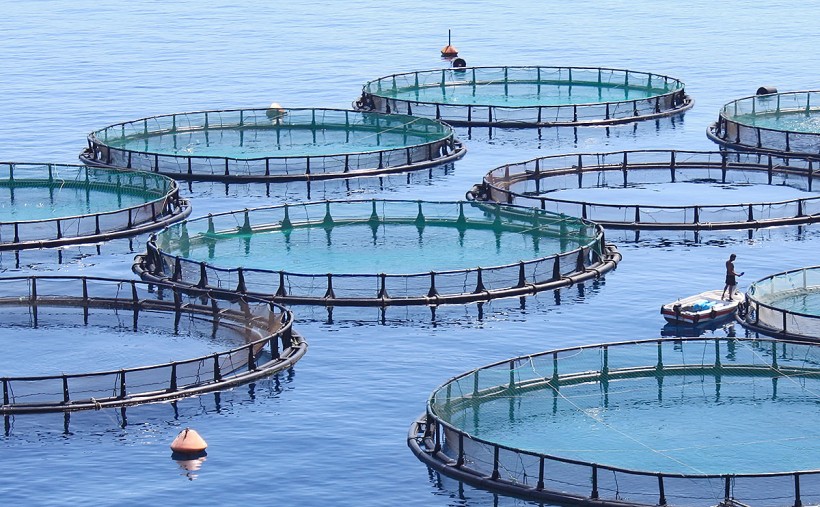Matt Zimola and Hossein Salimian have post-graduate degrees in computer science, yet they have found themselves immersed in the world of aquaculture.
They are two of the co-founders of ReelData, a Halifax startup that uses artificial intelligence to collect and analyze data for fish farms. Their software can analyze video from fish pens and produce meaningful data on the weight distribution of fish stock and the progress of certain diseases.
ReelData is now working with several regional support agencies to move its business forward, and it hopes to have its solution installed in fish farms in Australia, Norway and Scotland by the end of the year. It’s strong progress for two guys who had no experience in aquaculture a year ago.
“It was definitely a steep learning curve to understand the industry, but everyone in the aquaculture industry is very helpful and open to new ideas,” said Zimola in a recent interview at the Startup Yard at Dartmouth’s Centre for Ocean Ventures & Entrepreneurship, or Cove.
A year or two ago, Zimola and Salimian were a startup waiting to happen. While studying computer science at Dalhousie University, they joined entrepreneurial programs and Zimola went through the Propel accelerator with a former project. But they were looking for a big market that could use an artificial intelligence solution.
Maritime Biologgers Raises $125K After Pivot
They teamed up with Thomas Trappenburg, a Dal AI and robotics professor, who steered them toward opportunities for advanced technology in the oceans space. Soon they settled on aquaculture as a target market.
One interesting thing they learned is that virtually all fish farm pens contain underwater video cameras. They also learned that aquaculture companies have a problem in assessing the weight distribution among the fish in their pens. These operations need to know that a certain percentage of their fish meet a minimum weight requirement, and until now the only way to do it was to get the fish out of the pen and weigh them.
Zimola, Salimian and Trappenburg are now working on what they call the “biomass” component of their technology, which applies artificial intelligence to produce data on the weight distribution of a fish stock just by analyzing video from the pen.
“The coolest thing about what we’re doing is the biomass,” said Zimola. “We’re able to tell what the weight is without knowing how far the fish is from the camera.”
It’s the biomass component that ReelData hopes to install in three fish farm operations this year. That would provide revenue to help the team build out predictive software that could help detect diseases within a fish stock.
The venture is already in talks with a major Australian company on developing a product that can detect amoebic gill disease, which is a huge problem in Australia’s aquaculture industry. In Norway, sea lice are a big issue and Zimola said the ReelData software will soon be able to detect them.
So far, ReelData has not raised equity capital and the team is working with several support groups. The company, which is a Startup Yard resident, received $25,000 from Innovacorp’s Sprint competition and is in Propel’s Incite program.










